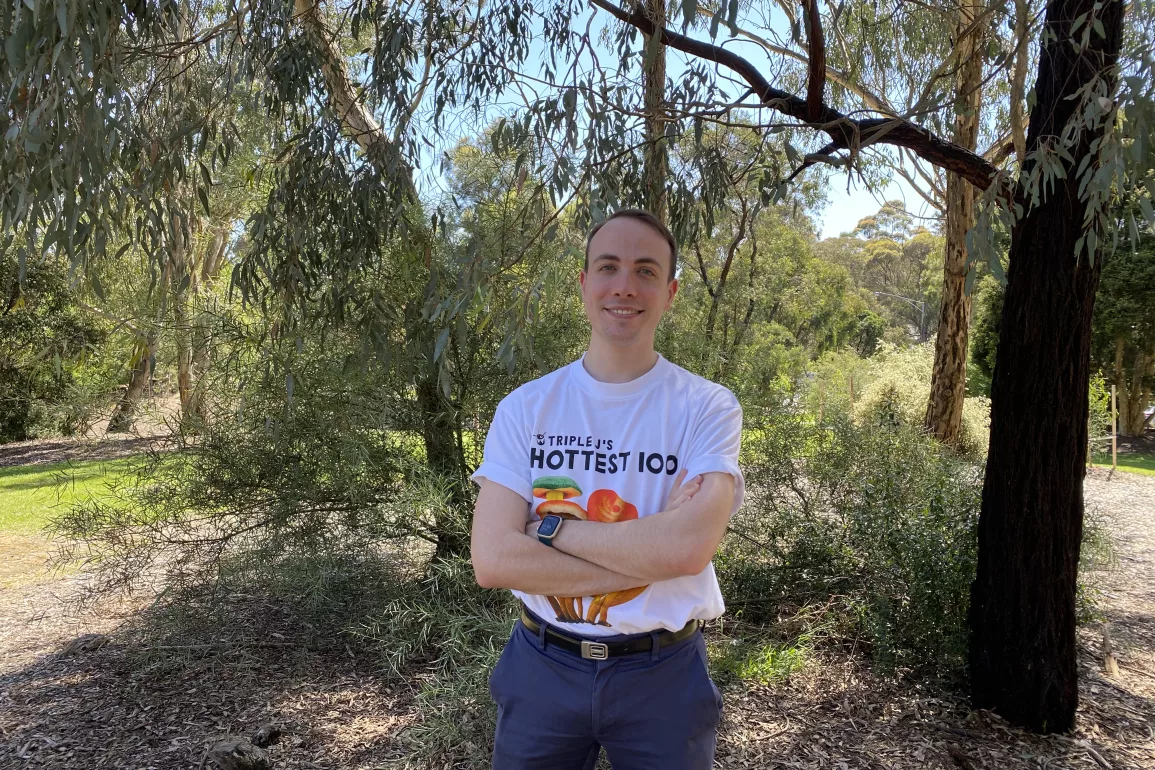Beyond their public personas and policy persuasions are politician’s personal stories of how they got to parliament. Copperline sought the stories of two such MPs – Nick McGowan, Liberal and Aiv Puglielli, of the Australian Greens. They are the two most recently elected Members of the Victorian Legislative Council for the North-Eastern Metropolitan Region. Both agreed to an interview, but Nick could not meet our deadline. So we begin here with Aiv Puglielli who spoke with CopperLine about his path to parliament.
Aiv said “I never set out to be a politician. Essentially my background was in the arts.” He trained at the National Institute of Dramatic Art (NIDA) before completing a bachelor’s degree at the Western Australian Academy of Performing Arts (WAAPA). “I ended up landing in theatre – composing, sound design and performance and short documentaries and film projects in Victoria, Sydney and also in WA.”
When Covid hit, the lack of government support for the arts and cultural sectors was the catalyst for Aiv to take the first steps that ultimately led him to a seat in parliament. “This really sent a message that we were not valued; that arts was not seen as legitimate enough to warrant income support to sustain ourselves the way that other sectors were provided. So a lot of people that I used to work with left the sector to work in real estate or other industries because they just needed to pay their bills. That really activated my politics in a proactive way. I’d always aligned with progressive policy and worldview, like the Greens for example. But at that time… because I was seeing my sector crumble, I got quite industrial-level active.
“I did a lot with my union at the time, which is the Media, Entertainment and Arts Alliance… It was a time of Black Lives Matter, and just after Me Too, all of these sorts of global movements having quite a lot of impact already on the arts scene. So all these things were intersecting and there was a whole generation of artists for whom their political activism really switched on.”
Momentum built among predominantly young, like-minded, grass roots supporters who helped Aiv with his election campaign which he said he managed himself from his bedroom-based office. Campaign funding came via donations from locals. “To be honest, we did a lot with very little. It was really a shoestring budget.” he said.
Asked how the reality of being in parliament is different from his perception before entering parliament, Aiv said “It’s been quite shocking to me to see how much is purely relationship driven; how much that affects negotiating or debate or even policy outcomes. And how much the media cycle dictates what issues are on the agenda. I would hope to see government, to be honest, in the long-term with a vision that prosecutes an agenda not because this has been talked about in the media, but because they have a long-term goal they’re trying to achieve.”
Speaking about his role as an MP, Aiv referred to the parliamentary processes available through which he can advocate for constituents. He added, “I will say, particularly to your readership, the more constituency matters that I can receive in my inbox or my messages the better, because I’m always looking for more things to directly advocate on.” He also added “I would encourage anyone that’s reading this who wants to see change in their local area, in state politics or state issues, should be putting their hand up. They should run for office.”





